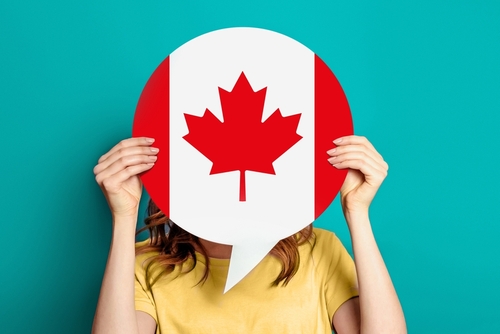Figuring out life in Canada isn’t only about winter coats and bus routes; it’s the words you’ll hear every day. At work, in class, or in the coffee line, Canadian English slang may introduce words and phrases you haven’t heard before. When someone orders a “double-double,” asks for the “washroom,” or reminds you to grab your “toque,” knowing these phrases goes a long way toward easier conversations and quicker connections.
At Remitly, we know settling in is more than forms and finances; it’s also learning about local culture and how to engage with the people around you. This guide breaks down the most common Canadian slang, regional twists you’ll hear in different parts of the country, and simple tips to start using these expressions with confidence.
What makes Canadian English unique?
Canadian English blends familiar pieces into something distinctly its own. Depending on where you are, you’ll hear British and American influences, plus everyday French words and Indigenous terms. The result feels approachable, but with touches that signal you’re in Canada.
A comfortable mix of British and American
In official settings, you’ll often see British-English spellings like “colour,” “neighbour,” and “centre.” However, in casual conversation, American phrasing tends to show up more, and many people switch between the two without thinking about it.
In texts, emails, and social media, mixing styles is completely normal. Writing “color” in a quick message and “colour” on a form is generally fine. The goal is clear communication, not perfection, and Canadians are flexible about both.
How Canadians sound: polite tone and “eh?”
You’ll hear softeners such as “sorry,” “just,” and “a bit” that keep conversations friendly and collaborative. The famous “eh?” is a simple tag that invites agreement, like “right?” or “you know?” Use it occasionally, like “Cold out there, eh?” and it will feel natural. If it doesn’t fit your voice yet, “right?” works anywhere.
French and Indigenous roots
In Québec and parts of the country beyond, French slips into English all the time. You may hear “dep” (from dépanneur, meaning convenience store), “guichet” (ATM), or “terrace/terrasse” for a patio. If a word is new, it’s perfectly fine to ask; most people are happy to explain.
Across different parts of Canada, Indigenous languages have shaped everyday vocabulary. Words like “kayak,” “toboggan,” and “skookum” reflect deeper histories. Learning where these terms come from is a great way to connect with the place you now call home.
Canadian slang words you’ll hear (and how to use them)
Learning local slang words and expressions is like getting the Wi-Fi password for everyday life. Start with a few words that feel natural, try them in low-stakes chats like coffee runs and hallway hellos, and add more as you go.
Daily life & food
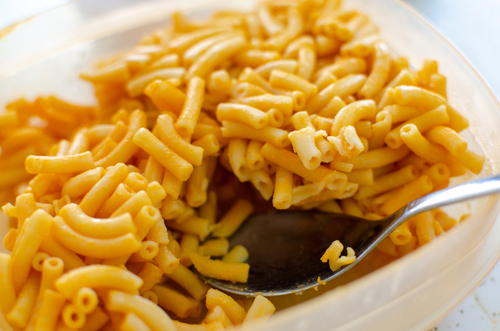
A few essentials you’ll hear at cafés, parties, and grocery runs.
- Timmies: Tim Hortons, Canada’s go-to coffee/donut spot
“See you at Timmies at 8.” - Double-double: Coffee with two creams and two sugars (often at Timmies)
“Could you grab me a double-double from Timmies?” - KD: Kraft Dinner (mac and cheese). A budget hero.
“I made KD for lunch.” - Pop: Soda/soft drink
“Want a pop or water?” - Poutine: Fries, cheese curds, and gravy. Not slang, but culturally essential.
“Let’s split a poutine after the game.” - Freezie: Frozen flavoured ice in a plastic tube
“Kids love freezies in summer.” - Two-four: A 24-pack of beer
“We picked up a two-four for the long weekend.” - Mickey: A 375 ml bottle of liquor
“He brought a mickey for the cabin trip.”
Clothing & weather

If you’re dressing for Canadian seasons, these come up a lot.
- Toque (Pronounced “tuke”): Knit winter hat
“Don’t forget your toque—it’s freezing.” - Runners: Sneakers
“Grab your runners; let’s go.” - Snowbird: Someone who goes south for winter
“My aunt’s a snowbird now; Florida every January.”
Money & measures
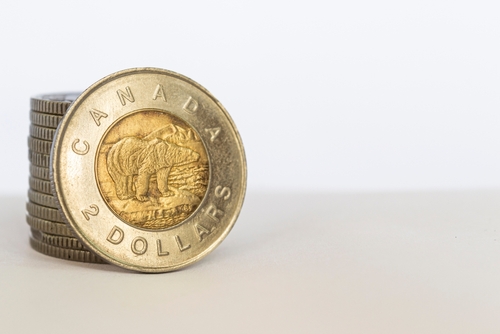
Handy when paying for things or reading signs.
- Loonie/Toonie: $1 CAD and $2 CAD coins
“Parking is $2, do you have a toonie?” - Click: Kilometre
“The trail is five clicks long.” - Hydro: Electricity (common term in Ontario)
“The hydro bill came today.”
People & personality
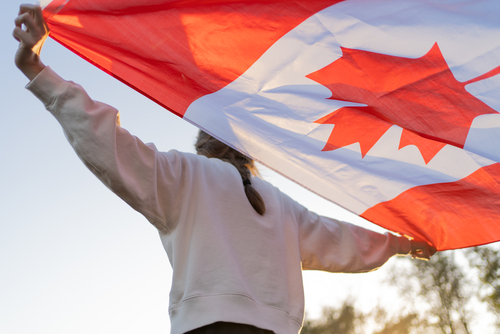
Light, everyday ways to talk about people—kind, teasing, and everything in between.
- Buddy/Bud: Friendly way to address someone (tone depends on context)
“Thanks for the help, buddy.” - Keener: A very eager person (usually at school or work)
“She’s a real keener in class.” - Hoser: Old-school, playful insult for someone uncool/silly
“Don’t be a hoser; share the Timbits.” - Canuck: A Canadian (often affectionate; also a hockey team name).
“As a proud Canuck, I love the first snowfall.”
Places & transit
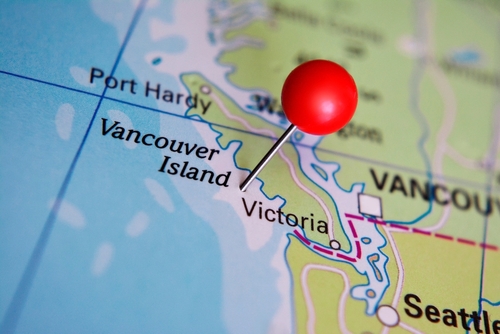
Useful when you’re navigating a new life in a Canadian city.
- Washroom: Bathroom/restroom
“Is there a washroom here?” - Cottage/Cabin: Country vacation home (cottage in Ontario, cabin out west)
“We’re at the cottage this weekend.” - The Island: Often Vancouver Island (context matters)
“We’re heading to the Island for a few days.” - The 6ix (pronounced “six”): Toronto’s nickname
“Concert in the 6ix tonight.”
Work, home, & school

Words that pop up at work events, in lectures, and during move-in week.
- Chesterfield: Couch (old-fashioned, but people know it)
“Crash on the Chesterfield.” - Subbie: Substitute teacher
“We have a subbie today.” - College vs. university: Different paths: college = diplomas/trades; university = degrees
“I’m doing a two-year college program before uni.”
Social & conversation
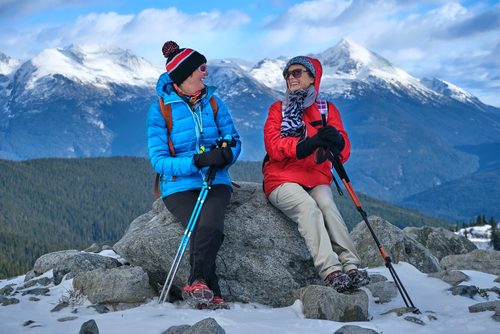
These little phrases keep chats friendly and collaborative.
- Eh?: Tag for agreement or a quick check-in
“Wild weather, eh?” - Right?: Another softener that invites agreement
“That commute is long, right?” - Buddy system: Go together and help each other out
“Let’s use the buddy system for the hike.” - Give’r: Go for it/try your best
“We’re late; just give’r.”
Shopping & services
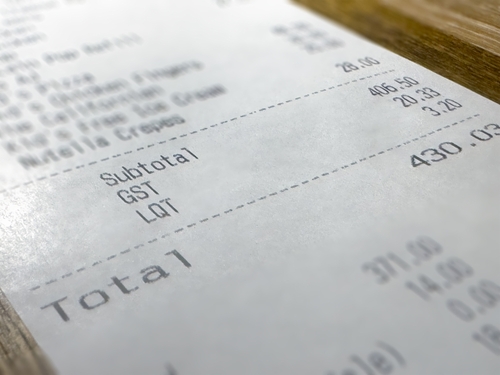
Good to know at checkouts and ATMs.
- The dep: In Québec, short for dépanneur (convenience store)
“I’m running to the dep for milk.” - Pay by tap: Contactless payment (tap your card/phone)
“You can just pay by tap.” - GST/PST/HST: Sales taxes (you’ll see these on receipts)
“That’s before HST.”
Holidays & everyday culture
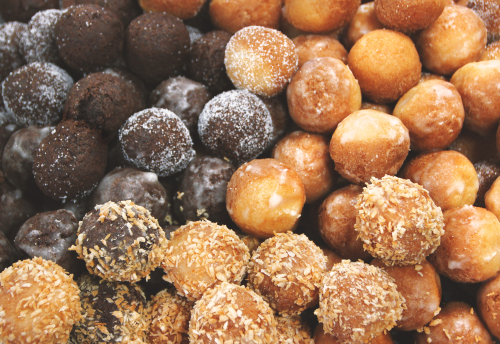
Helps when planning time off or weekend trips.
- Stat: Statutory holiday
“Is Monday a stat?” - May 2-4: The Victoria Day long weekend
“We’re camping for May 2-4.” - Toonie Tuesday: Discount day at some spots (famously KFC)
“It’s Toonie Tuesday!” - Timbits: Tim Hortons doughnut holes (instant office hero)
“Who brought Timbits?”
Keep this list handy and test a couple in real life during coworker chats, study groups, or when making new friends. You’ll be surprised how quickly these little words make conversations easier and more fun.
Regional variations in Canadian slang
Canada is huge, and the slang changes as you cross provinces. You’ll get by without it, but learning a few local favorites might help you click with people faster.
Atlantic Canada (Newfoundland & Labrador, Nova Scotia, New Brunswick, Prince Edward Island)
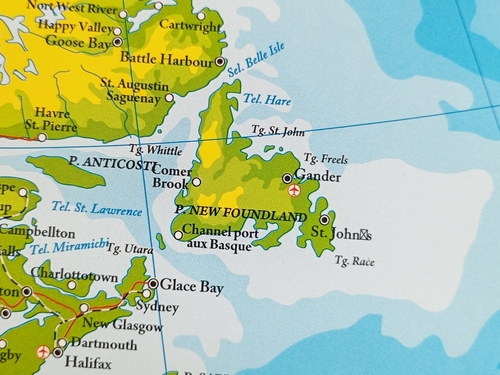
Warm people, ocean views, and plenty of music—expect cozy words to match the vibe.
- Kitchen party: A music-and-friends hangout, often literally in someone’s kitchen
“We’re having a kitchen party Saturday; bring a guitar or just yourself.” - Buddy: Default friendly way to address someone; can mean almost anyone in a kind way
“Buddy, you dropped your glove.” - Fill your boots: Go ahead; take as much as you want
“Cookies are on the table; fill your boots.” - By’ (boy): Casual term of address in Newfoundland English
“How’s it goin’, by’?”
Québec
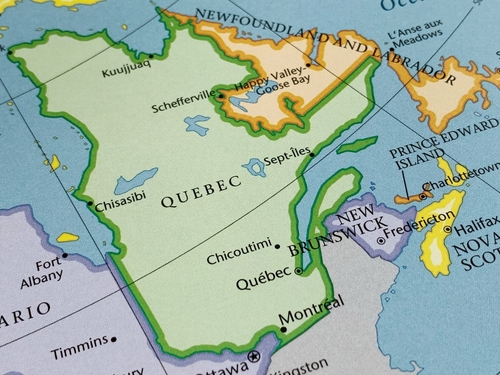
You’ll hear English with a French rhythm, plus French words sprinkled in.
- Dep: Short for dépanneur (a convenience store)
“I’m heading to the dep for milk.” - Guichet: ATM
“Is there a guichet near here?” - Terrasse/terrace: Patio at a café or restaurant
“Let’s grab a table on the terrasse.” - Cégep: Québec’s pre-university or technical college system
“I’m doing two years at cégep before university.”
The Prairies & the West (Manitoba, Saskatchewan, Alberta, British Columbia)
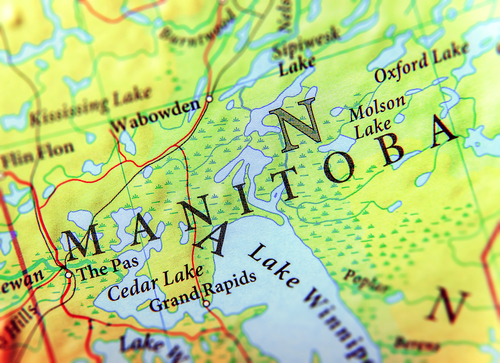
Big skies, mountain views, and a few region-specific words that locals love:
- Bunny hug: Saskatchewan’s term for a hoodie
“It’s cool tonight, grab your bunny hug.” - Parkade: Multi-level parking garage (common in B.C. and Alberta)
“There’s a parkade under the mall.” - Skookum: In B.C., it means strong, great, or solid
“That’s a skookum deal.” - Chinook: Warm wind that can melt snow fast in southern Alberta
“Chinook’s coming; temps will jump tomorrow.”
Why learning Canadian slang matters for newcomers
Think of slang as the shortcut key to daily life in Canada. A few local words make errands faster, small talk easier, and navigating new places easier. You’re not changing how you speak; you’re adding a couple of phrases so you feel at home sooner.
It makes everyday stuff easier
When you know a loonie or toonie is exactly what the bus machine wants or realize a stat on the calendar means a paid day off, everything moves faster. You’ll breeze through checkout because the GST/HST on the receipt makes sense, and tap to pay isn’t a mystery. The more familiar these little terms are, the less time you spend decoding.
It helps you click with people
Using one or two local words is a friendly signal that you’re paying attention to the culture, and people appreciate that. It’s an easy icebreaker with neighbors, classmates, or coworkers, and it opens the door to longer conversations. You’ll also catch cultural references in jokes and stories, making group chats and hangouts a lot more comfortable.
It gives you confidence at work and school
Knowing Canadian nicknames, in jokes, and casual phrases helps you follow meetings, lectures, and team chats without getting lost. You’ll feel more relaxed speaking up, asking questions, and joining the conversation. That confidence adds up and can lead to better networking, smoother interviews, and a stronger sense of belonging.
Tips to learn and use Canadian slang confidently
Slang sticks best when you hear it in real life and try it in small moments. Start with what feels natural and what you like yourself.
Watch Canadian TV and films (and listen for tone)
Shows like “Schitt’s Creek,” “Kim’s Convenience,” and “Sullivan’s Crossing” sprinkle in everyday speech you’ll hear on the street. Pay attention to pacing, understatement, and how jokes are delivered—friendly, dry, and rarely too serious. If a line makes you smile, repeat it out loud—it helps your ear catch the rhythm.
Practice with Canadians
Try new words in casual environments like chatting in the office kitchen or while waiting for coffee. If you hear something new, ask—most people enjoy explaining local phrases. Keep it light, try one expression at a time, and you’ll get warmer responses than you might expect.
Join community groups and classes
Libraries, newcomer centers, and cultural associations often run conversation circles or volunteer meetups. These are perfect places to hear slang in context. You’ll practice with people who are patient, and you might walk away with a study buddy or a hockey-game invite. Consistency beats perfection: show up weekly and your confidence will grow fast.
Use online resources
Local subreddits, newcomer Facebook groups, and YouTube or TikTok videos about Canadian life are great for hearing how people actually talk. Search by city or province and read the comments to see how phrases are used in context. Follow a few creators you like, turn on captions, and save new terms in your notes to practice later.
Ease into it
You don’t need to say “eh?” at the end of every sentence to fit in. Pick two or three expressions that feel like you and use them where they make sense. As your ear adjusts, add more—sounding comfortable matters more than sounding perfect.
Learn the culture around the words
Language sticks when you connect it to real moments. Long weekends like May 2-4, hockey nights, patio season, and winter skating explain why certain phrases pop up.
As you settle in, listen for patterns, try a phrase or two, and celebrate the small wins (like understanding your first inside joke). And whenever you need help with the practical side of life, moving, budgeting for the cost of living, navigating healthcare, or planning for citizenship, we’re here to help you feel at home, step by step.
How Can Canadian English Slang Enhance Communication for French-speaking Newcomers?
Canadian English slang can greatly enhance communication for French-speaking newcomers by bridging cultural gaps. Understanding essential french phrases alongside slang expressions fosters comfort and relatability. This interplay not only enriches conversations but also helps newcomers integrate more smoothly into their communities, making everyday interactions more enjoyable and effective.
FAQs
What are the most essential Canadian slang words to learn first?
Start with “toque” (winter hat), “washroom” (restroom), “double-double” (coffee with two cream/sugar), “loonie/toonie” ($1/$2 coins), “runners” (sneakers), and “eh?” (a friendly tag question).
Does Canadian slang vary by region?
Yes. You’ll hear “kitchen party” in Atlantic Canada, “dep” (short for dépanneur, meaning convenience store) in Québec, “bunny hug” (hoodie) in Saskatchewan, and “skookum” (great/strong) in B.C. Join local events or community groups to hear these in context, and pick them up naturally.
How can I practice speaking Canadian slang without sounding forced?
Pick two to three phrases that feel like you and use them where they naturally fit. Watch Canadian shows like “Schitt’s Creek” and “Kim’s Convenience” to catch tone and rhythm, then mirror what you hear. If you run into a new word, ask a coworker or neighbor.
